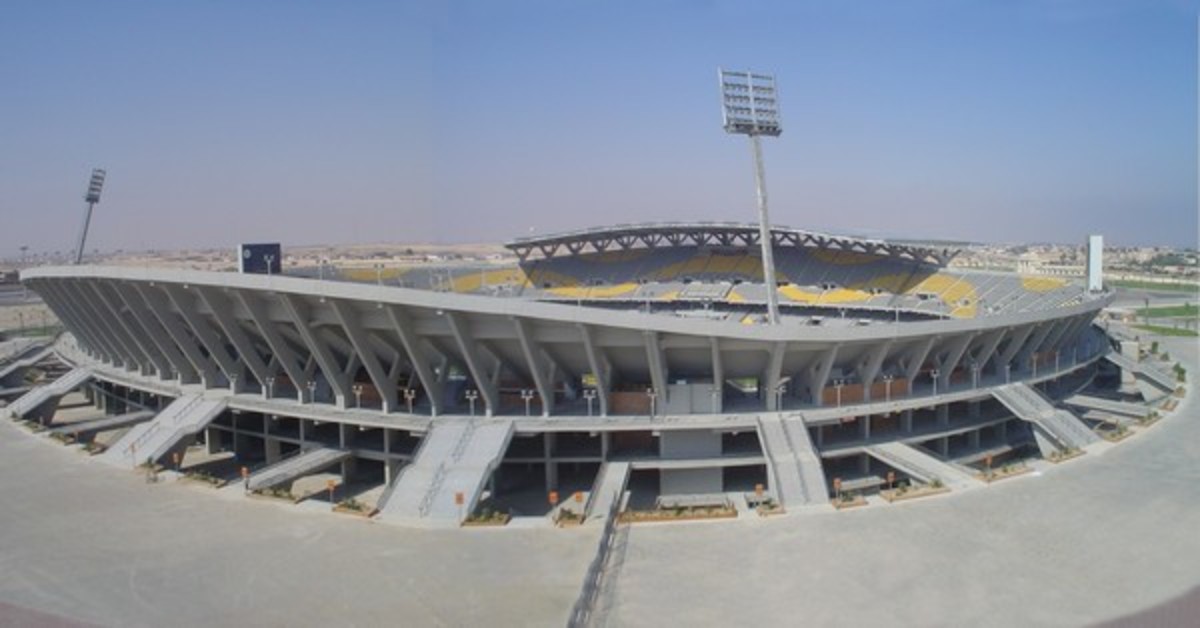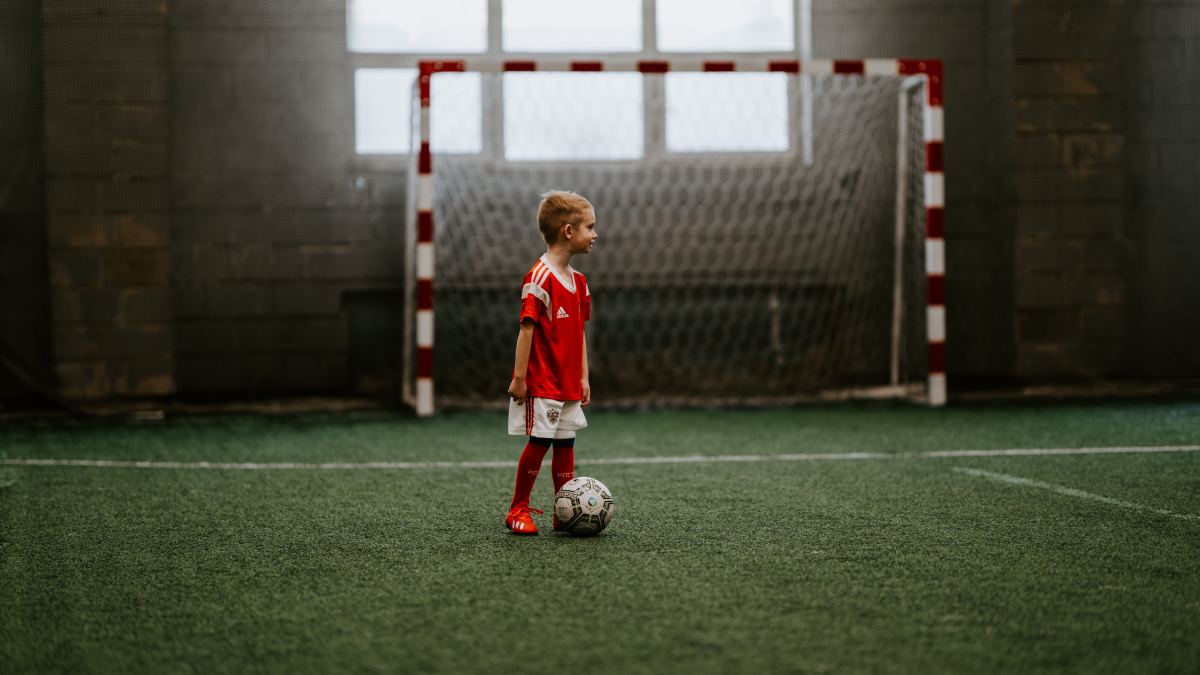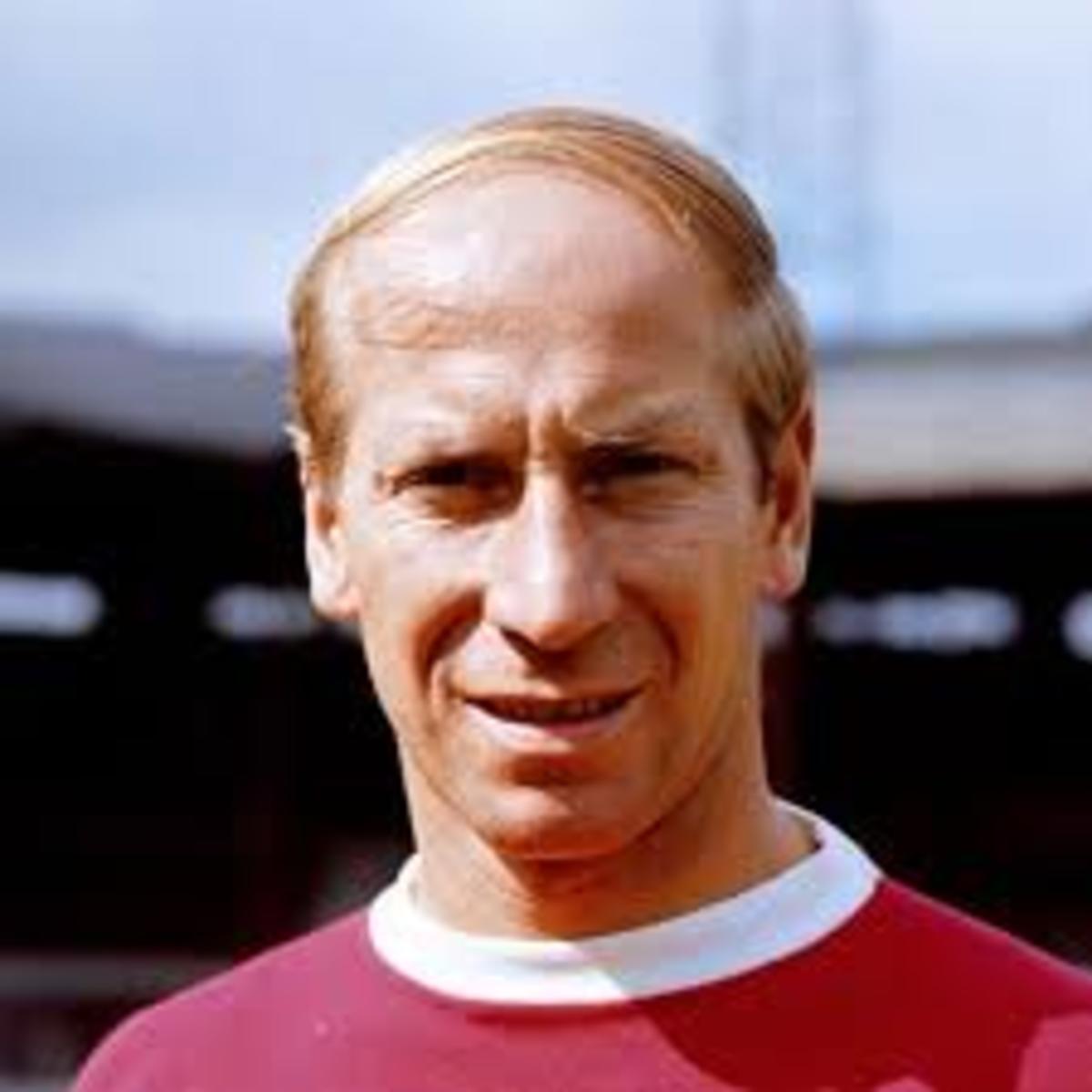FC Barcelona: Where's the Magic Gone?
Reigniting the Fire
When I was little I loved football, I was a huge Liverpool fan and my favourite player was Michael Owen. As I got older I lost interest, started playing other sports and eventually, football was relegated to summer viewing during major international tournaments.
However, one day that all changed. It was during the 2010-2011 season in the Champions’ League round of 16. I went to school with a fanatical Arsenal supporter that was chanting “we’ve got Cesc Fabregas” all day before the game. He was going on and on about how Arsenal had won the first leg and beaten Barcelona, who according to him had the best player in the world – someone called Lionel Messi.
So that evening, out of sheer curiosity, I flicked on Sky Sports and decided to see what all the fuss with this Barcelona side was about. As we all know, that game ended 3-1 with Barcelona going through and eventually winning the entire tournament. I was sold, suddenly football was interesting again. The quick passing, the movement off the ball, the trickery. That Barcelona team did things with a football I didn’t know were possible, and it reignited my love for the game.
They won the League and Champions’ League double that year. The following year, Guardiola’s last in charge, saw them narrowly miss out on a Champion’s League final through the miracle campaign that Chelsea put together and also saw them yield the La Liga crown to Mourinho’s Real Madrid. I was fortunate enough to see them in the one competition they did win that year, the Copa Del Rey. It was a Clasico at the Nou Camp, one of the most heralded games in one of football’s most sacred temples. Mourinho vs. Guardiola, Ronaldo vs. Messi. It was magical, the game finished 2-2 and even though I still support Liverpool, it was Barcelona that brought me back to Football.

Ever Changing
So, what has changed? Guardiola’s departure was remedied by his assistant, Tito Vilanova, taking over for the 2012-2013 season. Tito’s short reign provided the same style of play, although those familiar with Guardiola’s style and demands would have noticed a drop in willingness to win the ball back high up the pitch and a more ponderous, rather than penetrating passing approach. Still, the end of 2012 saw Lionel Messi reach the best goal scoring form of his career, breaking Gerd Müller’s longstanding record for goals in a calendar year. They also won La Liga with a staggering 100 points, 15 clear of Real Madrid. Despite this success, all was not rosy. They were eliminated in the semi-finals of the Copa del Rey by Real and suffered a humiliating 7-0 aggregate loss to eventual Champions’ League winners Bayern Munich at the semi-final stage. While their ability to dispatch smaller teams with ease was intact, their big game credentials had been shot to pieces – with a lack of discipline and aggression being touted as key factors. Another influencer was likely the deteriorating health of Tito, who had to take lengthy absences during the season for his cancer treatment. Eventually, these health issues resulted in his having to step down at the end of the season and he tragically passed away in 2014.
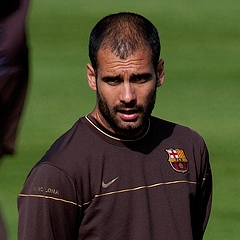
Decline
What followed was the appointment of Messi’s international compatriot, Tata Martino. The signing of Neymar ignited optimism in the Nou Camp ahead of the new season, and it seemed well founded as they opened the season with 13 wins and a draw, including a 2-1 win over Real Madrid in the Clasico. However, as the season went on their form dipped. Messi was increasingly isolated and frustrated, fans were angry at the more direct style of play, which was being easily stifled by teams defending deep and in the latter stages of the season, Barcelona seemed happy to play the ball out to Dani Alves and have him cross into an empty penalty area time and time again. Eventually this approach took its toll on results and Barcelona lost the La Liga crown to Athletico Madrid on the last day of the season, with the same opposition knocking them out of the Champions’ League at the quarter final stage, their earliest knockout since before the Guardiola era. To rub salt in the wounds, Real Madrid beat them in the Copa del Rey final, to bring about Barcelona’s first trophy less season in many years.
Many factors were blamed for the decline at that time. Some say Barcelona’s players grew complacent after Guardiola left, with less demanding managers their work rate off the ball decreased, leading to lazy defending and since they weren’t winning the ball as high up the pitch, it became harder and harder to break down well organised teams. Until 2014 their signings didn’t work out very well either. Alexis Sanchez was impressive in his first season, but failed to make a large impact in the following two, eventually turning to diving at the lightest contact rather than actually trying to play. Fabregas meanwhile, struggled to define his role in the team. With Xavi and Iniesta still at their peak, he found himself either played out of position, or deputising for one of them in the smaller games. When Guardiola, Tito or Tata did try and fit Xavi, Iniesta and Fabregas into the team, it meant either a highly imbalanced midfield, with no Busquets protecting the back four, or it shoved Iniesta out onto the left wing, which deprived the team of pace on the flanks and left him isolated. The team’s failure to buy a centre back also greatly impacted their ability to compete. Gerard Pique and Mascherano became the pairing of choice, with Carlos Puyol suffering several severe injuries at the time. However, with only two senior centre backs, one of whim was a defensive midfielder by trade, Barcelona were increasingly short staffed at the back, often having to turn to inexperienced La Masia graduates or even Alexandre Song at times. The long-term losses of Puyol were felt on and off the pitch. He was a leader and an organiser who never lost concentration, even, as Pique once pointed out, if his team were 4-0 up in the 89th minute.
Neymar’s move to Barcelona should have heralded a new era, instead the shady structure of his transfer led to the resignation of the popular president Sandro Rosell and replaced him with the current president, the hugely unpopular Josep Maria Bartomeu. All of the political background noise could have been silenced by Neymar, but his first season, hampered by injuries and his propensity for showboating, hampered his impact and his first season is often forgotten.

Tactical Battle
Tactics are just as important to the Barcelona faithful as results, and their shifts since the Guardiola years didn’t do much to enthuse the fans. Tito did his best to maintain the Guardiola style, but his approach was more relaxed than his predecessor’s, leading to the team struggling in the big games. Their reliance on Messi’s individual brilliance won them the league, but he alone couldn’t pull them through the big games that ultimately cost them the other trophies. Tata Martino did much more to irk the club’s supporters. He put Messi in a lone striker role, rather than the false nine he had previously enjoyed, and attempted to add more direct dribbling and crossing to their game with the direct approaches of Neymar and Alexis Sanchez on each flank. This just didn’t fit with the Barcelona style, and passing moves were often broken up by direct dribbling, while direct play was hampered by the more careful, possession based passing the La Masia graduates were used to. In an attempt to amalgamate two styles, they ended up getting in the way of each other, with Barcelona having their worst season in recent memory.
Tata stepped down after just a single season in charge and after much speculation, Luis Enrique was put in the Barcelona hot seat. His transfer dealings seemed smart enough, bringing in Ivan Rakitić to sure up the midfield and adding some much-needed firepower up front by bringing in Luis Suarez from Liverpool, despite his biting ban. The sale of the under performing Alexis Sanchez didn’t ruffle too many feathers, although questions were raised about allowing Fabregas to leave for Mourinho’s Chelsea.
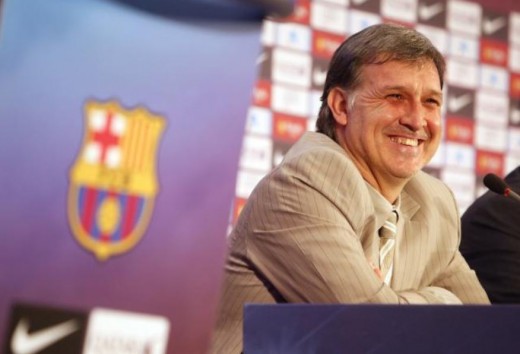
Double Treble
Barcelona started the season in good form, but the decision to start Luis Suarez in the Clasico as his first game back from suspension backfired, with Barcelona losing 3-1 to their arch rivals. From October on things didn’t improve much, Real Madrid were on an unprecedented winning run and Barcelona were languishing, with Luis Suarez making the worst goal scoring start of any forward in a Barcelona jersey. It all reached a breaking point when Enrique left Messi and Neymar on the bench for a game against David Moyes’ Real Sociedad. They ended up losing the game and the Catalan media were already calling for the manager’s head.
What happened next was a reportedly heated team discussion with Xavi’s inspirational words spurring on the team. This led to a phenomenal run that saw the fearsome front three of Messi, Neymar and Suarez hit form all at once and culminated in Barcelona becoming only the second ever team to win the treble. New signings Rakitić and Suarez, along with Neymar scored in the final, while Messi’s masterclass in the Copa del Rey final against Athletico Bilbao showed why he was still considered the world’s greatest player. In January, the media was talking about Barcelona losing the plot, Messi being past it and Enrique’s days being numbered. Just a few short months later and he had repeated Guardiola’s magnificent feat of winning the treble in his first campaign. Barcelona as it seemed, were back.
Such was the elation around the Nou Camp that people hardly noticed the subtle shifts in Barcelona’s playing style. Luis Suarez went into the centre forward position, giving the team a target man for the first time in years. Messi was moved out to the right and given more freedom to create, while the industrious Rakitić was able to provide cover, thus eliminating the necessity for Messi to track back. The passing changed too, with the emphasis off keeping possession, Barcelona were quicker in transition, and their passing more deliberate and direct. Neymar’s ability to beat his man and Suarez’s style of play stretching centre backs created spaces for Rakitić and Iniesta to run into. When Barcelona were on form they were unplayable. However, in order to maximise time and space for the front three, midfield superiority was sacrificed, but it didn’t matter, as their attack was so potent, opponents couldn’t find time to breathe, let alone exploit Barcelona’s frailties. The season ended on a high and provided the perfect swansong for the legend that was Xavi. As he waved good bye to the Nou Camp, you couldn’t help but wonder if Barcelona were not only losing a legend, but a piece of their identity as well.

There is No MSN in Team
Despite the departure of Xavi, their scintillating form continued into the next season when the team, wearing horizontal stripes for the first time in their history, went on a winning run not too dissimilar to Real Madrid’s the previous year. The famed MSN were seemingly unstoppable, with Suarez outscoring the bunch. All seemed rosy at Barcelona, until the quarter finals of the Champion’s League, where they were eliminated by Athletico Madrid at that stage for the second time in three seasons, while they also lost the Clasico that fell in between those two legs. In that period, they went on a four-game winless run in the league that included a draw and three defeats. That period saw them eliminated from the Champions’ League and opened the door for Real Madrid to give chase in the title race.
Barcelona managed to hang on, winning the league by one point and recording their second straight Copa del Rey triumph. These trophies papered over the cracks that were beginning to appear. Their famous trident had pulled them along, but when they began to tire, the rest of the team didn’t have the teeth to pick up the slack. Such was the danger of bypassing the midfield that when the front three weren’t firing, the supporting cast were unable to pick up their slack. The Guardiola ethos that everyone works together had been all but abandoned in favour of using the team to maximise individual ability. It was a stark reminder to fans that even though the trophies were there, the philosophy that had brought the club so much success, and produced perhaps the greatest club side ever to exist was all but gone.
In the summer, the debate raged on as to what was happening at Barcelona. Messi’s contract talks seemed to constantly stall and there were more credible than ever rumours of a potential transfer to Manchester City. Some questionable transfer decisions were made, including the purchase of Andre Gomes from Valencia who, while a good player in his own right, did not seem to fit the Barcelona mould. Luis Enrique recognised the need for an able deputy on the front line and brought in Paco Alcácer, though it was clear he wasn’t the club’s top target. The season was up and down at best, featuring extreme highs and astounding lows. There were some magical moments, but they were brought about more by passion than any actual footballing prowess. After being humiliated 4-0 by PSG in the Champions’ League round of 16, they turned it around against all odds with a last-minute winner at the Nou Camp, sending them through 6-5 on aggregate and sparking celebrations so raucous they recorded a minor earthquake in Barcelona. The team were quickly brought down to earth when they failed to score against Juventus over the two legs of the quarter finals and exited the competition at the same stage for the second year in a row.
Despite the disappointment of the Champions’ League, they did manage to take the title race down to the wire, thanks to a memorable 3-2 win in the Clasico in which Messi scored his 500th goal for Barcelona with the last kick of the game. Despite his heroics, Real held on to win the title and Barcelona had to settle for their third Copa del Rey in as many seasons. It was a remarkable season that provided some of the greatest footballing highs and lows we had ever seen. Luis Enrique left his post after three hugely successful years in charge and after much speculation, Ernesto Valverde was appointed as the new permanent boss.

Transfer Turmoil
What followed next was a disastrous summer for the club. Transfer speculation surrounding Neymar had been rife, but the club’s directors saw no real danger of him leaving. Fast forward a couple of months later and Neymar made the £198 million switch to PSG, leaving Barcelona short in attack and embarrassed at losing the player seen as Lionel Messi’s successor to a team in what is considered a lesser league to La Liga. This sparked panic in the Barcelona boardroom as they scrambled to strike deals for both Ousmane Dembélé and Phillipe Coutinho. They eventually struck a deal for the former, in what was the second most expensive transfer ever after Neymar’s. However, despite their best efforts they couldn’t pry Coutinho away from Liverpool, with the Merseyside club still stung by the sale of Luis Suarez a few seasons earlier. The sale of Neymar, coupled with their inability to Lure Coutinho away from Liverpool meant Barcelona took a major hit to their stature in world football and left people questioning if they were still as influential as they had been in previous years. More eyebrow raising transfers, including the €40 million purchase of former Tottenham flop Paulinho from China, led to most supporters writing off the current season.
Despite the general gloom and doom over the team as the season kicked off, they currently hold a five-point lead at the top of La Liga and just finished top of their Champions’ League group. Valverde has transitioned to a more possession based game and has put his trust in the team’s squad players and La Masia graduates. Rotation policy and youth development were constant complaints of the Luis Enrique era, as he preferred to buy rather than promote within, though he wasn’t helped by the lacklustre output of La Masia in recent years.

New Horizons
Although Barcelona have started the season in good form, they aren’t as free scoring as they have been in recent years, while their lack of attacking threat and ageing squad are still concerns. Their early season form has papered over the cracks, while Messi has been in scintillating form, but that doesn’t change the fact Iniesta is ageing and Sergi Roberto and Denis Suarez, while capable deputies, just aren’t at the level of the team’s previous midfield maestro’s. The hope is that a heavier influence on the team’s midfield will lighten the burden on Messi and the currently misfiring Suarez. With Valverde’s rotation policy, Denis Suarez and Sergi Roberto may still come into their own, while La Masia once again seems to be on the right track. However, while Barcelona seem to be on the right track, they still aren’t producing the scintillating football that captured the world’s imagination and dominated the European stage for nearly a decade.
Time will tell if the next generation of La Masia graduates will bring back the footballing principles that brought Barcelona to the top of the world stage. For now, those who fell in love with the Barcelona of old will have to do with the memories and occasional glimpses of that same brilliance as long as Lionel Messi and Andres Iniesta continue to dance around on the pitch.
We should enjoy their brilliance while it lasts, because while it might not be as magic as it once was, it still has the ability to bring us back to those glory days, when Barcelona’s style of play was undisputed as the greatest example of how football should be played the world had ever seen.

